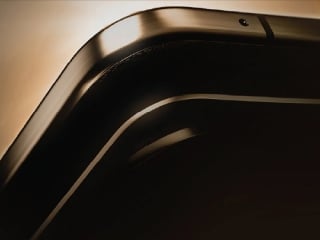- Home
- Transportation
- Transportation News
- Alphabet's Waymo Said to Demand $1 Billion in Uber Settlement Talks
Alphabet's Waymo Said to Demand $1 Billion in Uber Settlement Talks

Alphabet Inc's Waymo sought at least $1 billion (roughly Rs. 6,510 crores) in damages and a public apology from Uber Technologies Inc as conditions for settling its high-profile trade secret lawsuit against the ride-services company, sources familiar with the proposal told Reuters.
The Waymo self-driving car unit also asked that an independent monitor be appointed to ensure Uber does not use Waymo technology in the future, the sources said.
Uber rejected those terms as non-starters, said the sources, who were not authorised to publicly discuss settlement talks. The precise dollar amount requested by Waymo and the exact time the offer was made could not be learned.
Waymo's tough negotiating stance, which has not been previously reported, reflects the company's confidence in its legal position after months of pretrial victories in a case which may help to determine who emerges in the forefront of the fast-growing field of self-driving cars.
The aggressive settlement demands also suggest that Waymo is not in a hurry to resolve the lawsuit, in part because of its value as a distraction for Uber leadership, said Elizabeth Rowe, a trade secret expert at the University of Florida Levin College of Law.
Waymo recently persuaded a San Francisco federal judge to delay a trial to decide the dispute from October to early December, citing the need to investigate evidence Uber had not disclosed earlier.
No further settlement talks are currently scheduled, the sources said. The judge overseeing the case mandated that the companies enter mediation with a court-appointed magistrate.
Amy Candido, a Waymo attorney, declined to comment on any settlement talks, but said the company's reasons for suing Uber are "pretty clear."
"Waymo had one goal: to stop Uber from using its trade secrets," she said. "That remains its goal."
An Uber spokesperson declined to comment.
Disruptive
Waymo sued Uber in February, claiming that former engineer Anthony Levandowski downloaded more than 14,000 confidential files before leaving to set up a self-driving truck company, called Otto, which Uber acquired soon after.
Uber denied using any of Waymo's trade secrets.
Waymo's lawsuit has been disruptive for Uber. US District Judge William Alsup granted Waymo's request for a pretrial injunction in May, which prohibited Levandowski from working on Lidar, a key sensor technology for self-driving cars that is the crux of the current litigation.
Uber later fired Levandowski, regarded as a visionary in autonomous technology, after he refused to return Waymo documents at the heart of the case. Levandowski has asserted his constitutional right against self-incrimination and declined to answer questions from Waymo lawyers.
Meanwhile, Uber co-founder Travis Kalanick stepped down as chief executive in June after allegations of widespread misconduct at the company became public. Kalanick has since become embroiled in a boardroom fight with fellow Uber investor Benchmark Capital.
Benchmark cited Waymo's allegations of trade secret theft in separate litigation aimed at forcing Kalanick off Uber's board. A Delaware judge put that lawsuit on hold and sent it to private arbitration.
On Sunday October 1, the day before Kalanick was scheduled to give a deposition in the Waymo case, Kalanick's lawyers called Waymo and asked to postpone the deposition, lawyers for both companies said in court last week.
Kalanick's lawyers said he was in the middle of a fight to appoint new board members and was therefore too busy, Waymo attorneys said in court. Waymo refused the request, forcing Kalanick to attend the deposition.
Distracting a competitor
Causing such distractions for a competitor are a clear benefit to Waymo, Rowe said. Uber has hired three law firms to litigate the case and devoted thousands of hours to probe Uber servers for Waymo confidential information.
"I'm counting all those as good reasons to keep the lawsuit going," Rowe said.
Waymo has estimated damages in the case at about $1.9 billion (roughly Rs. 12,370 crores), according to court filings, which Uber disputes. Despite that figure and the big settlement demands, Waymo views winning a permanent injunction against Uber using any Waymo intellectual property as the main priority, another source familiar with the company's thinking said.
Much of the technical evidence in the case has been filed under seal, making it impossible for outside observers to independently assess the strength of each side's arguments. In court last week, Alsup said Uber's product was "dissimilar" from Waymo's.
Even if a jury finds that Uber stole Waymo trade secrets, Uber says in court filings that its engineers have designed around the Waymo technology at issue in the case. If that is true, that would lessen the impact on Uber in the event of a defeat in court.
Waymo is skeptical of Uber's claim, however. In a court filing on Monday, it requested an order forcing Uber to disclose its source code, or underlying software, for its Lidar products.
The Alphabet subsidiary said in the filing that it recently learned that former employees took Waymo source code when they went to work at Uber, "including software related to the 'brains' of the vehicle that determines how the car moves."
© Thomson Reuters 2017
Catch the latest from the Consumer Electronics Show on Gadgets 360, at our CES 2026 hub.
Related Stories
- Samsung Galaxy Unpacked 2025
- ChatGPT
- Redmi Note 14 Pro+
- iPhone 16
- Apple Vision Pro
- Oneplus 12
- OnePlus Nord CE 3 Lite 5G
- iPhone 13
- Xiaomi 14 Pro
- Oppo Find N3
- Tecno Spark Go (2023)
- Realme V30
- Best Phones Under 25000
- Samsung Galaxy S24 Series
- Cryptocurrency
- iQoo 12
- Samsung Galaxy S24 Ultra
- Giottus
- Samsung Galaxy Z Flip 5
- Apple 'Scary Fast'
- Housefull 5
- GoPro Hero 12 Black Review
- Invincible Season 2
- JioGlass
- HD Ready TV
- Laptop Under 50000
- Smartwatch Under 10000
- Latest Mobile Phones
- Compare Phones
- OPPO A6c
- Samsung Galaxy A07 5G
- Vivo Y500i
- OnePlus Turbo 6V
- OnePlus Turbo 6
- Itel Zeno 20 Max
- OPPO Reno 15 Pro Mini 5G
- Poco M8 Pro 5G
- Lenovo Yoga Slim 7x (2025)
- Lenovo Yoga Slim 7a
- Realme Pad 3
- OPPO Pad Air 5
- Garmin Quatix 8 Pro
- NoiseFit Pro 6R
- Haier H5E Series
- Acerpure Nitro Z Series 100-inch QLED TV
- Asus ROG Ally
- Nintendo Switch Lite
- Haier 1.6 Ton 5 Star Inverter Split AC (HSU19G-MZAID5BN-INV)
- Haier 1.6 Ton 5 Star Inverter Split AC (HSU19G-MZAIM5BN-INV)
















